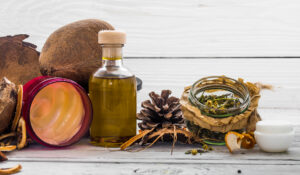Essential oils are powerful, natural extracts that can do wonders for your skin, mood, and overall wellness—but only if they’re stored correctly. Whether you’re a casual user or a bulk buyer, improper storage can shorten the shelf life of your oils and reduce their effectiveness.
So how do you keep these aromatic treasures in peak condition? Let’s break it down.
 1. Use Dark-Colored Glass Bottles
1. Use Dark-Colored Glass Bottles
Essential oils are highly sensitive to light, especially sunlight and artificial UV light. That’s why amber or cobalt blue glass bottles are the gold standard. They protect your oils from light exposure, which can lead to oxidation and loss of potency.
Avoid plastic containers. Essential oils can break down plastic over time, especially citrus oils.
 2. Keep Them Cool (But Not in the Fridge)
2. Keep Them Cool (But Not in the Fridge)
Essential oils do best in a cool, stable environment—ideally between 10–25°C (50–77°F). Avoid storing them near heat sources like:
-
Radiators or heating vents
-
Direct sunlight
-
Kitchen stoves or bathrooms with steam
Refrigeration isn’t necessary for most oils, though some (like citrus oils) may benefit from cold storage to extend their shelf life. If you do refrigerate, let the oil come to room temperature before use.
 3. Seal Tightly After Every Use
3. Seal Tightly After Every Use
Air exposure leads to oxidation. Always close the cap tightly after use to prevent air from degrading the oil. If your bottle has a dropper or euro-dropper insert, make sure it’s snug and clean to avoid leaks or contamination.
Pro tip: If your oils smell “off” or have lost their scent strength, they may have oxidized.
 4. Avoid Cross-Contamination
4. Avoid Cross-Contamination
Never touch the inside of the bottle or dropper with your fingers or tools. This can introduce bacteria or water into the oil, which can spoil it. Use clean droppers or pipettes if transferring oils.
 5. Store Upright & Organized
5. Store Upright & Organized
Keep oils stored upright in a box or tray, away from direct light. You can use:
-
Wooden storage boxes
-
Essential oil cases
-
A cool, dark cabinet
Label your oils clearly with purchase or open dates so you know how old they are.
 6. Know the Shelf Life
6. Know the Shelf Life
Essential oils don’t last forever. Here’s a general guideline:
| Oil Type | Approximate Shelf Life |
|---|---|
| Citrus oils (e.g., lemon, orange) | 1–2 years |
| Lavender, tea tree, eucalyptus | 3–4 years |
| Woody/resinous oils (e.g., sandalwood, patchouli) | 6+ years |
When stored properly, many oils can last even longer without losing their benefits.
 Final Thoughts
Final Thoughts
Taking care of your essential oils means preserving their aromatic beauty and therapeutic power. With just a little effort, your oils can stay fresh, effective, and ready for whatever ritual or routine you need them for.
Whether you’re using them for wellness, skincare, or creating custom blends, proper storage is key to getting the most out of every drop.





